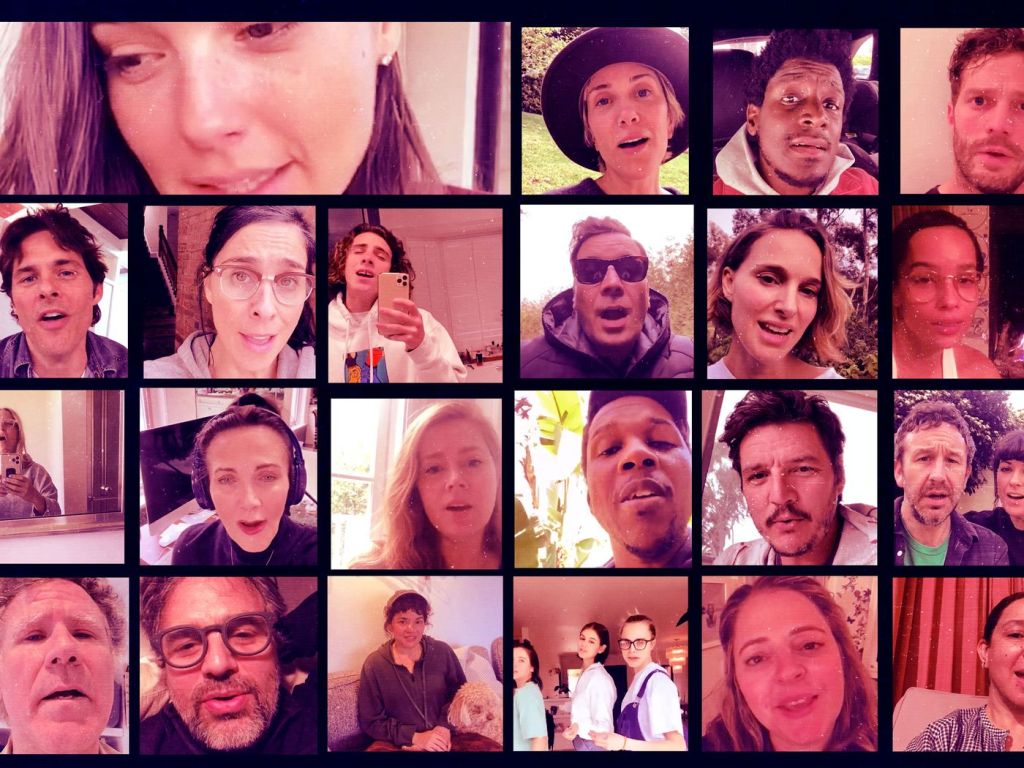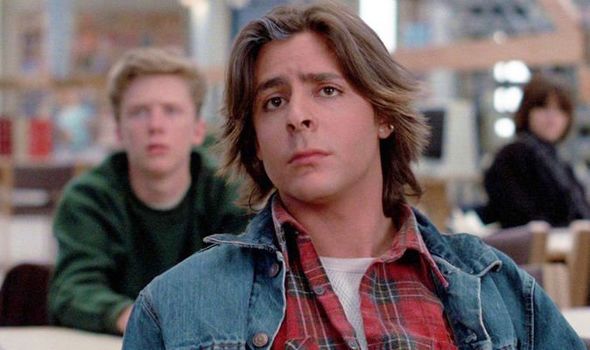Spoilers within.
The greatest tragedy in Don’t Look Up isn’t the end of the world. It’s the tremendous waste of the star power within it. As Nick Allen writes, “If Don’t Look Up deserves any award, it’s for the work of its casting director, Francine Maisler.”

There is no denying that the film is a veritable orgy of star-powered excess. It feels like a We Are the World spectacular, partly because of the big name stars dropping by to add their face to the mix, but also because the film doesn’t appear to be beholden to things like character development or narrative arcs, or, well, any kind of richness or nuance or substance. It isn’t a story. It’s a pop song without a hook and with way too many guest performances.
It feels more like a sequel to the “Imagine” fiasco of 2020 than a feature length film. After all, Jon Caramanica’s critique of that fiasco — “You might say that every crisis gets the multi-celebrity car-crash pop anthem it deserves, but truly no crisis, certainly not one as vast and unsettling as the current one, deserves this” — feels remarkably apt for this fiasco, as well.

Let’s discuss.
I chose not to read reviews about the film before watching it — an affectation I developed partly because I don’t want other voices shaping my experience but also because I disagree with the party line so often that it feels fairly irrelevant what it is. Because I had not read reviews, I did not even realize (yes, this is embarrassing to admit) that the film was about climate change until the very end. Even then I only realized it when I saw animals being affected and the tragedy was so great that I almost turned the movie off. Those difficult moments (approximately 15 minutes before the end of the film if you are hoping to escape them) were the only moments that elicited real emotion.
I didn’t think the film was about climate change because that felt so cringingly on-the-nose that surely director Adam McKay would be above that, right?
Instead, I thought the film was trying to make a statement about Covid. When discussing my book Going Viral: Zombies, Viruses, and the End of the World, and the parallels between our current pandemic and the pandemics depicted within American film and television over the last thirty years, one point keeps coming up: no one in Hollywood could have dreamed up a pandemic that people denied. For instance, there simply isn’t a movie (that I know of) where zombies are running down the street and a happy family simply insists There Are No Zombies. There isn’t a movie where the local municipality runs out of body bags and the local body politic still insists the plague is a hoax, and here, have some ivermectin to protect you.
This is what I, and so many others, got wrong. Embarrassingly, in the introduction of my book, I talk about how an out-of-control epidemic is simply not a concern any longer because I thought we knew better. I thought we had infrastructure in place to protect us. Because it never occurred to me that there would be a president who refused to do anything about an outbreak, much less an entire political party determined to deny the same outbreak, coupled with vehement and violent citizenry furious not only that they might be expected to do their part but that other people are trying to do their part. And who would compare wearing a mask to the Holocaust? Who could have predicted that much self-centered idiocy?
I mean, it’s insane and absurd, and occasionally funny, and so I naturally thought this movie was all about THAT. I thought Don’t Look Up was about Covid-deniers, vehement journalists and politicians and citizenry determined to look anywhere but at the truth until it was too late.
Except then I read the reviews and realized that the major reason Leonardo DiCaprio signed on was because the film is a powerful statement about the dangers of climate change and something something something — I haven’t read the press release. I did watch the movie though, and yes, it is quite literally about the world being on a collision course with its own demise.
McKay did take a bit of a creative license with the whole comet thing and he threw in a specific countdown (and thank god he did because the movie could have stretched on even longer if he hadn’t) but other than that, everything will feel so familiar to any thinking member of our society that I’m not sure where to find the laughs. And that “literalism” is the main problem with the film, because it is more than possible to make a scathing indictment of societal stupidity and have it be actually funny and whimsical and all that jazz (ie, Braindead), except then you’d have to be creative, which requires a fair bit of work.
In this case, however, McKay merely points out that we are dumb and don’t like discomfort or difficult issues or having to change our daily routines and therefore are likely going to die and moves right along. As Marlow Stern argues for The Daily Beast, “Yes, we live in a conspiracy-obsessed, anti-science time of dumbed-down morning shows, hashtag social justice movements, and tech moguls with messiah complexes. We’re all too aware of this. But merely pointing out their inanity…isn’t the same as wrestling with or unpacking them in any meaningful and/or funny way.”
The only thing the movie accomplishes is making the target audience (those who already know about climate change and climate deniers and the solipsistic echo chamber of Fox/QAnon/Newsmax/OANN) feel comfortably smug about the fact that they know how we will die.
What McKay doesn’t seem to get is that we are years into screaming into the abyss. We know people are willfully ignorant. We know people don’t give a fuck until a social issue bites them in the ass. We have read countless articles about people directly harmed by Trump’s policies who didn’t realize that Trump’s policies would ever harm them (and the policies are totes okay if they harm other people, preferably people with darker skin). For a while, there were stories of immigrants tossed out of the country without any notice whose family members had voted for Trump, thinking that it would only be those OTHER immigrants who would get kicked out. We heard about the farmers who suffered as a result of Trump’s economic policies who thought that Trump would suddenly start caring about them on January 20, 2017 (since he definitely didn’t care about them beforehand). Remember the woman who voted for the Leopards Eating Faces Party who sobbed after leopards ate HER face?

Yes. Those leopards.
And now there are so many stories of anti-vaxxers begging for the vaccine while on their deathbed, after Covid had already taken away their ability to breathe, that I’ve lost track. I can’t even keep track of how many Republican radio talk show hosts have died of Covid after preaching the evils of the vaccine to their listeners.

So yes, we get it. We’ve heard this story. We’ve lived this plot. It’s still not funny. It’s not even tragic at this point. It’s just mind-numbingly infuriating and unless there is an additional point to be made on the backs of our frustration, it’s not a story I want to hear again.
If you want to make this kind of narrative meaningful, or even funny, you’ve got to make it about the people. Because that’s how you tell an interesting story — with interesting people. And the problem with Don’t Look Up is that none of the people are interesting. The characters, like the jokes, are just flimsy cardboard blowing in the wind.
The most interesting characters, Timothée Chalamet’s Yule (a skater punk searching for faith and meaning who might be The Breakfast Club’s Judd Nelson our moment needs) and Melanie Lynskey as June, Dr. Mindy’s long-suffering wife, are gone in the blink of an eye. All we get are two heartfelt moments: Yule leading a surprisingly poignant final prayer before the comet destroys the planet and June throwing pill bottles at her husband after catching him in the thick of his affair with Brie (Cate Blanchett), a Fox News blonde in the mold of Ainsley Earhardt or Megyn Kelly, only much less interesting.
The sad thing is that we have been living in the grimness of Covid and climate change and government gridlock and corruption for so long that the end of the world (or at least the end of democracy) does feel like it could be six months away. Because of this, I’d love some comedy as I get ready to bunker down to save myself from Omicron. So if someone does make a comedy that captures our frustration and despair, that manages to illuminate the darkness of the current zeitgeist while also spreading some light into the echo chamber, PLEASE SIGN ME UP.



Recent Comments